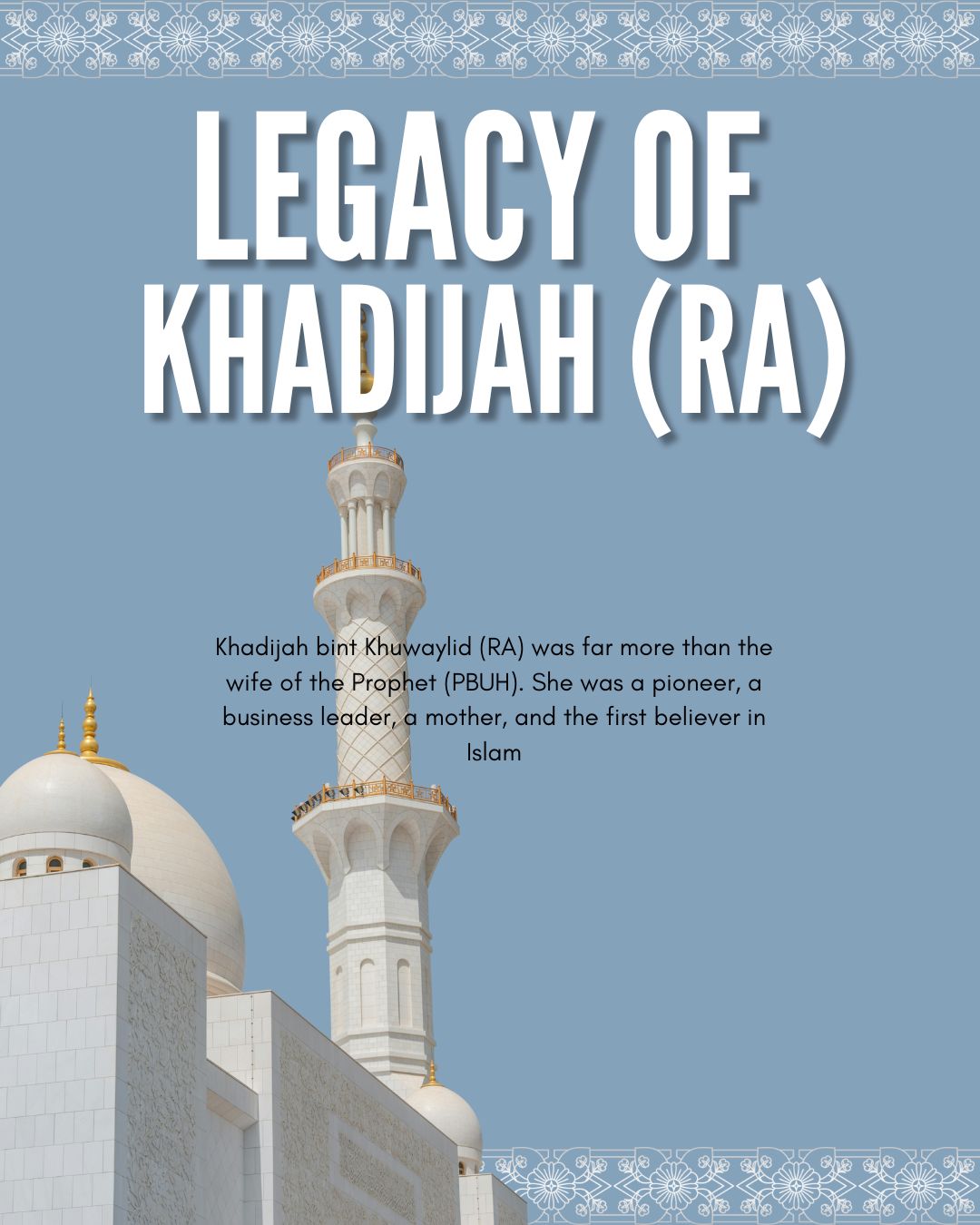Khadijah (RA) holds a unique and deeply respected place in Islamic history. As the first wife of the Prophet Muhammad (PBUH) and the first person to embrace Islam, her contributions to the early Islamic movement were both foundational and profound. More than just a figure of religious significance, Khadijah (RA) was also a powerful entrepreneur, a devoted wife, and a role model for generations of Muslim women.
A Woman of Wealth and Integrity
Before Islam, Khadijah (RA) had already made a name for herself in Makkah’s competitive trading environment. She inherited her father’s business and quickly expanded it through sharp business acumen and high ethical standards. Her caravans rivaled those of the wealthiest merchants, and she was known for her fairness and generosity. Despite operating in a society where women had few economic rights, Khadijah (RA) managed one of the most successful trading enterprises in Arabia.
She employed agents to handle transactions on her behalf, and one of them was Muhammad ibn Abdullah (PBUH). Impressed by his honesty and character, she proposed marriage after witnessing his trustworthiness firsthand during a business trip to Syria.
A Marriage Rooted in Love and Support
Their marriage was marked by mutual respect, compassion, and spiritual connection. Khadijah (RA) was 15 years older than Muhammad (PBUH), but their bond was strong and harmonious. She provided him with emotional and financial stability during the early years of his prophetic mission.
When the Prophet (PBUH) received the first revelation in the cave of Hira, it was Khadijah (RA) who comforted and reassured him. Without hesitation, she accepted Islam, becoming the first believer. Her unwavering support gave the Prophet the strength to continue his mission in the face of growing opposition.
Sacrifice for the Sake of Faith
Khadijah’s (RA) acceptance of Islam was not merely symbolic. She used her wealth to support the struggling Muslim community, funded the liberation of slaves who accepted Islam, and helped shelter the oppressed. During the economic and social boycott against the Muslims in Makkah, she endured hunger and hardship with patience and dignity.
Despite losing her wealth and facing severe challenges, Khadijah (RA) remained a steadfast pillar of strength for the Prophet (PBUH) and his followers. Her sacrifices laid the groundwork for the growth of the Islamic faith.
Honored in This Life and the Next
The Prophet Muhammad (PBUH) often spoke about Khadijah (RA) with immense love and respect, even years after her death. He never married another woman during her lifetime, and he would regularly remember her kindness and contributions. Once, when Aisha (RA) expressed jealousy, the Prophet (PBUH) responded:
“She believed in me when no one else did. She accepted Islam when people rejected me.”
Her status is further affirmed by Allah, who sent a special greeting through the angel Jibreel (AS), promising her a palace in Paradise.
A Lasting Legacy
Khadijah’s (RA) life offers a powerful example for modern Muslim women and entrepreneurs. She demonstrated that a woman can be both successful in her professional life and deeply committed to her faith. Her story reminds us that dignity, patience, and belief are timeless virtues.
In a time where role models are often defined by fleeting fame, Khadijah (RA) stands out as a symbol of lasting impact. Her legacy continues to inspire those seeking to live with purpose, integrity, and devotion.
Conclusion
Khadijah bint Khuwaylid (RA) was far more than the wife of the Prophet (PBUH). She was a pioneer, a business leader, a mother, and the first believer in Islam. Her unwavering support of the Prophet (PBUH), along with her dedication to truth and justice, helped shape the future of the Muslim Ummah. Today, her story lives on—offering guidance, inspiration, and strength for anyone striving to balance faith with ambition.
- Info@salihaonlineacademy.com
- Chaman Zar Colony, Rawalpindi
- Sunrise At: 5:15 AM
- Sunset At: 4:50 PM
- Let’s Talk +923301790195


Leave A Comment